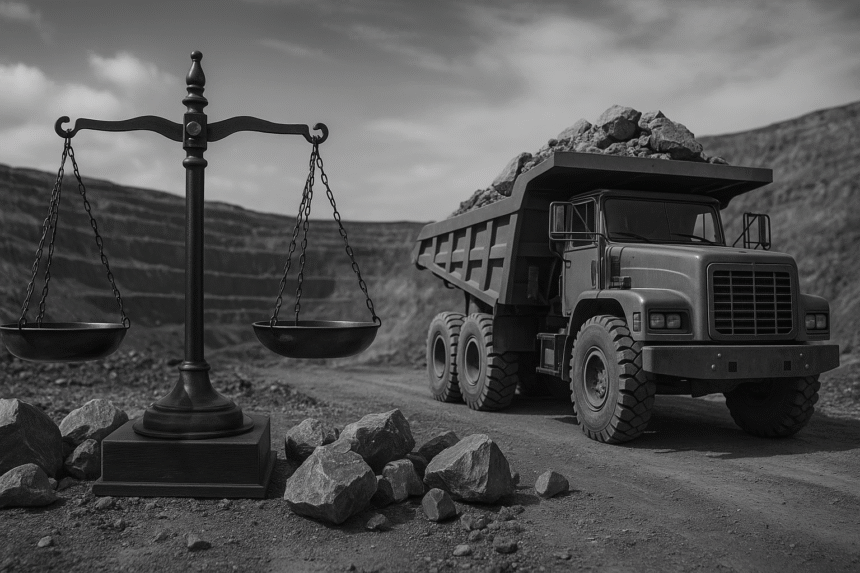Reasons Legal Due Diligence Can Make or Break Your Mining Deal
Introduction
Mining deals are often viewed as high-stakes opportunities—capital-intensive, politically sensitive ventures that promise major returns. But behind every promising exploration license or concession lies a hidden layer of complexity: legal exposure. One vague clause, one unverified title, and a multimillion-dollar deal can unravel.
That’s why legal due diligence is not just a formality—it’s the foundation of every successful mining transaction. Whether you’re acquiring a site, investing in a joint venture, or reviewing a concession contract, legal due diligence is your first line of defense. It identifies hidden risks, confirms compliance, and validates the legal standing of all critical agreements.
In this article, I’ll break down exactly why legal due diligence in mining deals is the smartest investment you can make—and why skipping it could cost far more than time. From land rights to royalty clauses, legal due diligence is where true security—and real value—begin.
What Most People Get Wrong
In mining transactions, most stakeholders focus on geological surveys, technical reports, and projected yields. And that makes sense—without minerals, there’s no value. But this narrow focus leads to dangerous oversights.
Too many investors assume that if the concession exists and equipment is in place, the legal side must be in order. They skip thorough legal review or rely on outdated titles and verbal assurances. But land rights, royalty obligations, overlapping claims, or compliance gaps can derail the entire operation—sometimes after millions have already been spent.
Here’s the truth: technical due diligence reveals potential. Legal due diligence secures it.
Why Legal Due Diligence Is the Real Gold
To explore a practical approach to uncovering these risks, see our step-by-step guide to legal due diligence in high-risk industries.
Here’s what proper legal due diligence does for you:
1. It Protects Your Investment Before You Dig
A thorough legal review validates ownership, licensing, and operational rights. It confirms that the company has the legal authority to mine and export, that no third-party claims exist on the land, and that all local, national, and international obligations are clear. This is your insurance policy before committing capital.
2. It Uncovers Hidden Risks You Won’t See in the Field
Legal due diligence reveals royalty traps, transfer restrictions, force majeure weaknesses, and environmental compliance liabilities. These aren’t visible in a site visit—but they can make or break the project later. Better to uncover them now.
3. It Strengthens Negotiation Power
When you understand the legal framework, you negotiate from strength. You can request amendments, indemnities, or escrow structures that protect you. The better your legal insight, the better deal you secure—not just financially, but structurally.
4. It Builds Trust With Investors and Institutions
Whether you’re a buyer or seller, due diligence adds credibility. Investors, lenders, and institutional partners feel more confident funding a project that has passed thorough legal scrutiny. It’s not just a defense—it’s a selling point.
Find an additional resource that will expound on your understanding about this matter here: What is due diligence and conduct it
Real-Life Example: One Clause, Two Years of Trouble
A mid-sized mining company in North Africa acquired what seemed like a high-potential copper site. The exploration license looked valid, the local partner was reputable, and the financing was in place. But the contract lacked a clear force majeure clause—and when government unrest halted operations, the partner demanded performance or penalties.
The deal ended up in arbitration. It took two years to resolve and cost over $1 million in legal fees—money that could have been saved if the original agreement had included standard protections.
This was not a technical failure. It was a legal oversight.
Common Counterpoint: “But It Slows the Deal Down”
Yes, due diligence takes time. But so does litigation, renegotiation, or the fallout of a bad acquisition. The goal of legal due diligence isn’t to delay deals—it’s to make sure you’re not rushing into the wrong one.
In fact, the fastest way to close a solid deal is to go slow at the start. Review every document. Verify every claim. Understand every risk. Only then should you sign.
Closing Thoughts
Mining is a capital-heavy, politically sensitive, and regulation-intensive industry. You wouldn’t start drilling without a geological survey. So why would you proceed without legal due diligence?
The next time you’re evaluating a mining opportunity—whether you’re an investor, buyer, or seller—remember: the real gold isn’t just in the ground. It’s in the clarity, structure, and foresight that only a legal review can provide.
Ask yourself: What could go wrong—and is it already hiding in the paperwork?



Leave a Reply